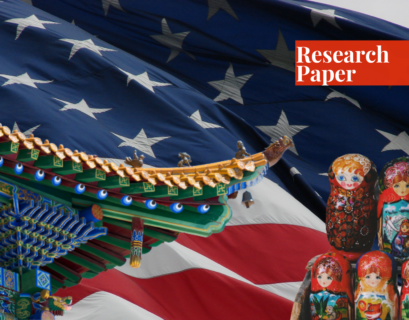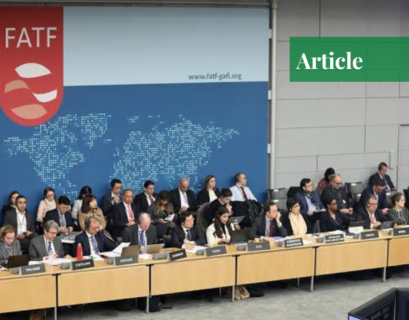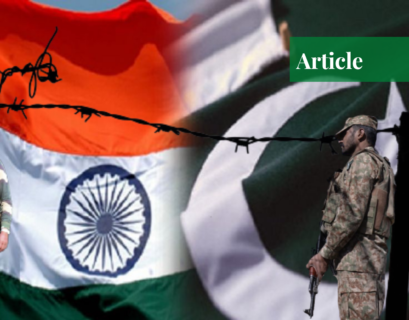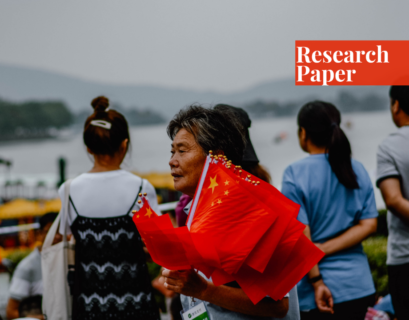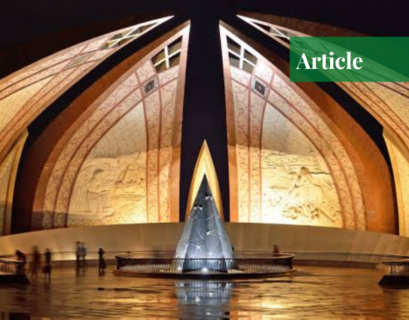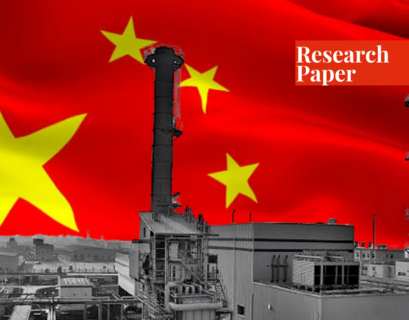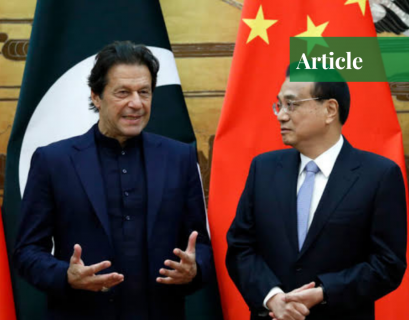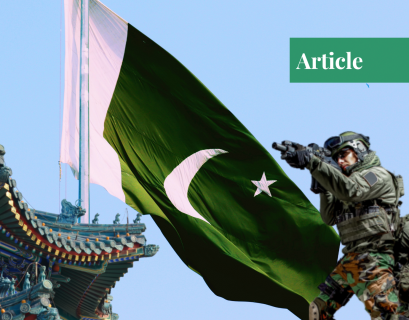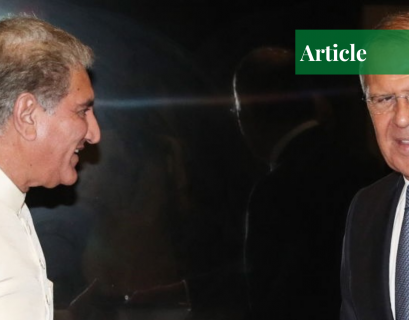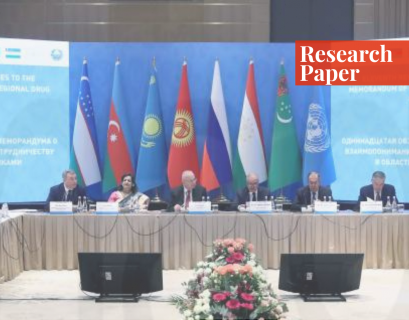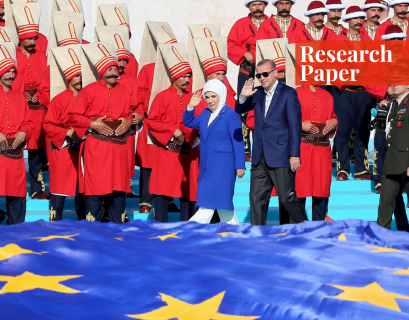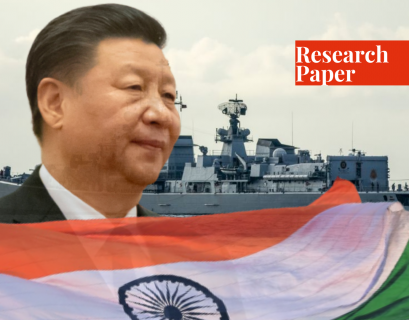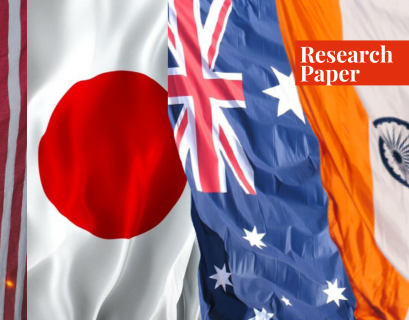The Rise of Russia and China: Is America in Decline?
After spending almost three decades as the world’s sole superpower, the United States of America has finally reached the point where its decline begins. The US economic, military, and political prowess is being rivaled by Russia and China. Abdul Majeed, a political researcher and former member of the Youth Parliament of Pakistan, notes that America’s share in the world economy has fallen from 40% in 1960 to 24% in 2019. Whereas, China’s share is increasing due to the massive infrastructure projects it has undertaken in Asia and Africa. Similar to its economic decline, the US has fallen behind Russia and China in technological development, and the 5G and space race. The author argues that the superpower is no longer the ideal democratic state. Not only has it been marked as a flawed democracy for the fifth consecutive year, but it has also lost its ability to militarily protect its allies, and as Russia and China develop, so do the threats to the US hegemony.
The Financial Action Task Force and Pakistan: A Political Agenda
Despite complying and delivering on 26 of the 27 points of the FATF’s action plan, Pakistan finds itself caught in a spider web, spun by the United States and India. The FATF has now issued a new six-point action plan for the country, leaving Pakistan in a bind. The FATF’s discrimination against Pakistan raises concerns about the impartiality of the intergovernmental body.
India’s Likely NSG Membership: The Bias Against Pakistan
India and Pakistan are entangled in a security dilemma which is leading to a costly and perilous arms race in the region. With the support of the global superpowers, India is set to be made a member of the Nuclear Suppliers Group (NSG) despite the serious threats and risks w.r.t. their nuclear technology. Pakistan, however, continues to be barred from gaining NSG membership, despite the relatively more secure set-up.
CPEC: China’s Soft Balancing Against the United States
The paper deals with China’s ‘soft balancing’ in Pakistan through the China Pakistan Economic Corridor (CPEC) and explains how such has helped limit the influence of the United States in Pakistan after 2015. The author argues that the CPEC is a step towards a more Beijing-led regional order —part of Xi’s Belt and Road Initiative (BRI) and greater ambition of extending his country’s influence — which has been working in China’s favor.
China and the United States’ Pandemic Diplomacy in Central Asia
The coronavirus pandemic has set the course for pandemic diplomacy, a strategy that could reinforce the soft power image of the state wielding it. The author reports the pandemic diplomacy taking place in the Central Asian states, with both China and the United States competing to gain the upper hand in this new area of diplomacy.
The Rationale and Significance for Soft Power in Pakistan
Has soft power become an esoteric term? The term alone calls for priority in the agenda of states in a world that hurriedly ushers a digital global community. Last month, Paradigm Shift conducted a poll, wherein 86% of the participants considered it crucial for Pakistan to develop its soft power. In view of that, the author underscores the importance of soft power not only for Pakistan but for every state.
How China Became an Economic Superpower?
China’s economic transformation in the last 40 years has had a huge impact on the global economy. This unprecedented economic scenario has attracted a lot of interest, particularly from developing countries looking to emulate China’s success. The author considers the infant industry model to explain China’s rapid industrialization and subsequent economic rise and explains how China’s long-term approach and facilitative policies have enabled local industries to become competitive worldwide. It also discusses what countries like Pakistan can learn from the Chinese experience with regards to strengthening their industrial base.
Are CPEC and East India Company Different?
Over the years, the people of Pakistan have expressed their growing concern over the China-Pakistan Economic Corridor (CPEC). It has become a common misconception in Pakistan that CPEC is just another modern-day East India Company. The author, Ayesha Zafar, compares the two and argues that the objectives of CPEC and the circumstances under which China set foot in Pakistan are different from that of the East India Company. She notes that while the East India Company was imperialist in nature and only benefitted the British Empire, CPEC profits both China and Pakistan. Instead of exploiting Pakistan, it is aiding in infrastructural development, energy production, and alleviating unemployment in Pakistan.
Neo-liberalism, Neo-Confucianism, and the Coronavirus: How China, the US, and Others Responded to the Pandemic
Comparing neoliberalism, Neo-Confucianism, the states representing these ideological approaches and how they handled the pandemic, reveals that China as an authoritative Neo-Confucian state, has been more proficient in handling the virus than the neoliberal states. The author supports this argument by explaining how states like the US, the UK, Italy, Spain, and France have proven themselves incapable of handling the pandemic, while China has effectively limited the proliferation of the virus and ensured the safety of its citizens. The author argues that since the US focuses more on the distribution of power and less on administrative efficiency, it cannot react quickly to unpredictable circumstances.
What is Olympic Diplomacy?: The Case of the 2022 Winter Olympics
Olympics diplomacy is a type of diplomacy that hasn’t garnered much attention in the international diplomatic arena. Both (the hosting and the participating) states try to assert dominance through the performance of their athletes. The Olympics can also build alliances, which was the case with China and the US in 1971. However, China’s alarming human rights violations have called for a boycott of the 2022 Winter Olympics in Beijing.
Diplomacy of Pakistan: Right Choices, Wrong Management
Pakistan’s past choices — the creation of Pakistan itself; the decision to join the American bloc; the decision to wage the war on terror; and choosing China as an ally — have defined its present status. Although these choices have been deemed appropriate, the mismanagement resulted in an economic downturn and an impairment of its diplomatic ability.
Pakistan and Russian Relations: A New Dawn
Although Pak-Russia relations have been marked by distrust and suspicion in the past, ties between the two states seem to be positively changing due to diplomatic visits and joint exercises. The recent visit of the Russian Foreign Minister to Pakistan and the mutual stance on the Afghan peace process have emboldened ties between the two nations. These bilateral relations have enormous potential in the areas of defence, mining, energy, tourism, among others.
The World Systems Theory and Covid-19
The implications of the world systems theory, proposed by Immanuel Wallerstein, can be seen in the influence of the coronavirus on the economy of each state affected by the virus. The author asserts that while the virus has heavily impacted the rich core states, they are still better off as compared to the developing and underdeveloped states. She explains that the pandemic has made the North-South divide even more apparent; it has made it clear that the world cannot have a unified economy.
The Strategic Importance of Central Asian States
At the center of the interests of major powers lies Central Asia, a region rich with untapped energy resources and economic markets. The author explains that while the region has immense potential for transnational and international cooperation, the security challenges and instability it faces, make it difficult for the Central Asian states to develop. Furthermore, the continuing instability has made foreign interventions almost necessary for these states.
Eurasianism vs. Neo-Ottomanism in the Turkish Foreign Policy
Turkey, formerly the Ottoman Empire, is said to have a foreign policy dictated by neo-Ottomanism, mainly by those who support the West. The author argues that neo-Ottomanism is incompatible with Turkey’s current foreign policies, and instead cites Eurasianism as the idea behind Turkey’s foreign policies.
China in the Indian Ocean: India’s Dilemma
The seas and oceans are the great highways and sea zones are considered to be the new war zones because of the increasing significance of Sea Lines of Communication (SLOCs). China’s increasing maritime interests in the Indian Ocean and the strategies opted by China to gain that command on the sea, especially in the Indian Ocean are creating a security paradox and competition in the Indian Ocean mainly because of the strategic connotation of important choke points.
The Quadrilateral Security Dialogue: A New Security Landscape in the Asia-Pacific
The Quadrilateral Security Dialogue is an informal security alliance aimed at creating a rule-based order in the Asia Pacific region. The Japanese Prime Minister at the Confluence of the Two Seas gave the idea of Security Diamond that would ensure the interests of like-minded countries. The Quad states – Australia, India, Japan, and the United States – have a common threat perception in the region that led to the revival of Quad after ten years of long hiatus.
